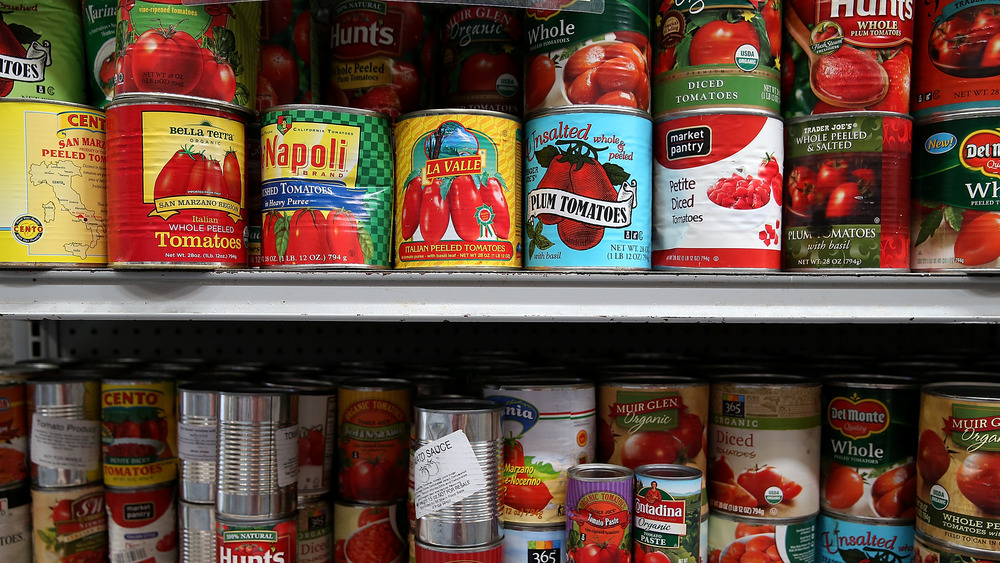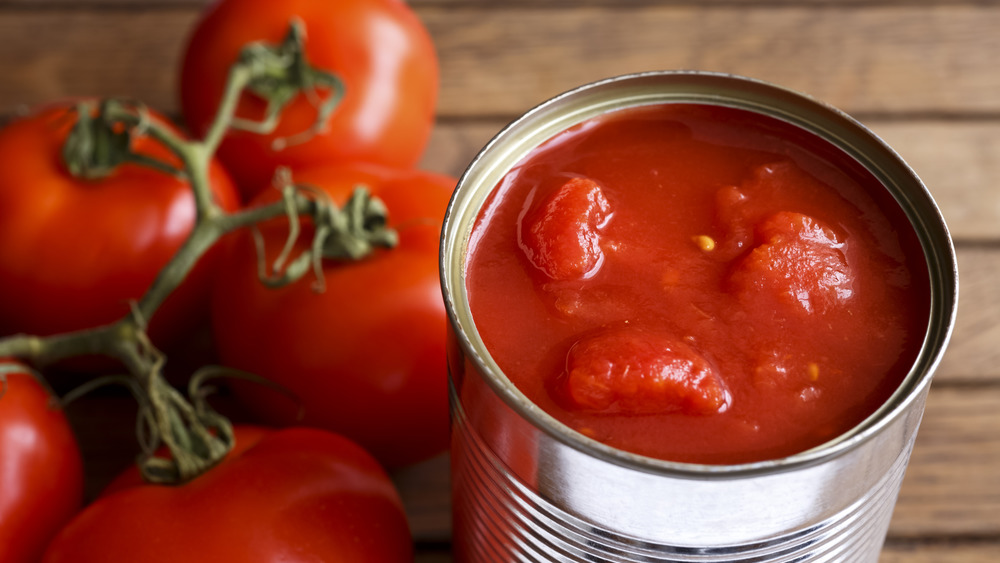Why You Should Think Twice About Eating Raw Canned Tomatoes
When it comes to versatility in the pantry, it's hard to beat canned tomatoes. Harvested and preserved at the peak of freshness, plump, red canned tomatoes are almost always tastier than fresh, according to the produce pros at Bon Appétit. Canned tomatoes bring acidity to the party, a great thing for counterbalancing fatty richness, like in the timeless duo of meatballs and marinara. They're also naturally brimming with umami, which experts at Science of Cooking say makes meals more flavorful by enhancing the savory taste of other ingredients.
With so many varieties and brands to choose from, finding the perfect tomato match for your recipe might seem daunting. Here's a quick primer on pasta's favorite fruit (yes, tomatoes are a type of fruit). If you're unsure exactly what you'll be cooking and just want a reliable, multipurpose canned tomato, opt for whole peeled. These beauties are packed in juice or light puree and can be worked into an endless array of recipes, like braises, stews, and chili. Crushed tomatoes are tomatoes mashed in their juices with a smooth texture that works well in soups and sauces.
Another option is diced tomatoes, which, as the name suggests, come in the can already chopped. Counterintuitively, diced tomatoes are less likely to break down during cooking because of the additive calcium chloride, a firming agent that the tomato-lovers at Food52 suggest avoiding. No matter what kind of canned tomato you're using, however, there's a reason they should never replace fresh tomatoes in uncooked preparations.
Canned tomatoes have already been cooked
Tomatoes go on quite the journey before arriving in cans on the grocery store shelf. Once picked, tomatoes are peeled by steaming or dunking in a hot water bath. The peeled tomatoes then go into cans which are sealed, heated and held at a high temperature until the contents are sterilized, according to the Food Network, effectively "cooking" them. So if you're hankering for a BLT or some pico de gallo, always find fresh. Bon Appétit also advises that canned tomatoes should be cooked to concentrate their flavor and get rid of any bitter or tinny taste.
There's another reason you might want to think twice before cracking open a can. Consumer Reports found Bisphenol A, a chemical that has been linked to cancer, heart disease and other negative health effects in a wide array of canned foods. Better known as BPA, this controversial compound is commonly used in the production of food can liners and food-grade plastics.
Fortunately, a growing number of brands, like Muir Glen, Eden Foods and Bionaturae, now proudly offer BPA-free canned products. So stir them into soup, squish them into sauce or serve them up countless ways — just don't forget to cook your canned tomatoes.

